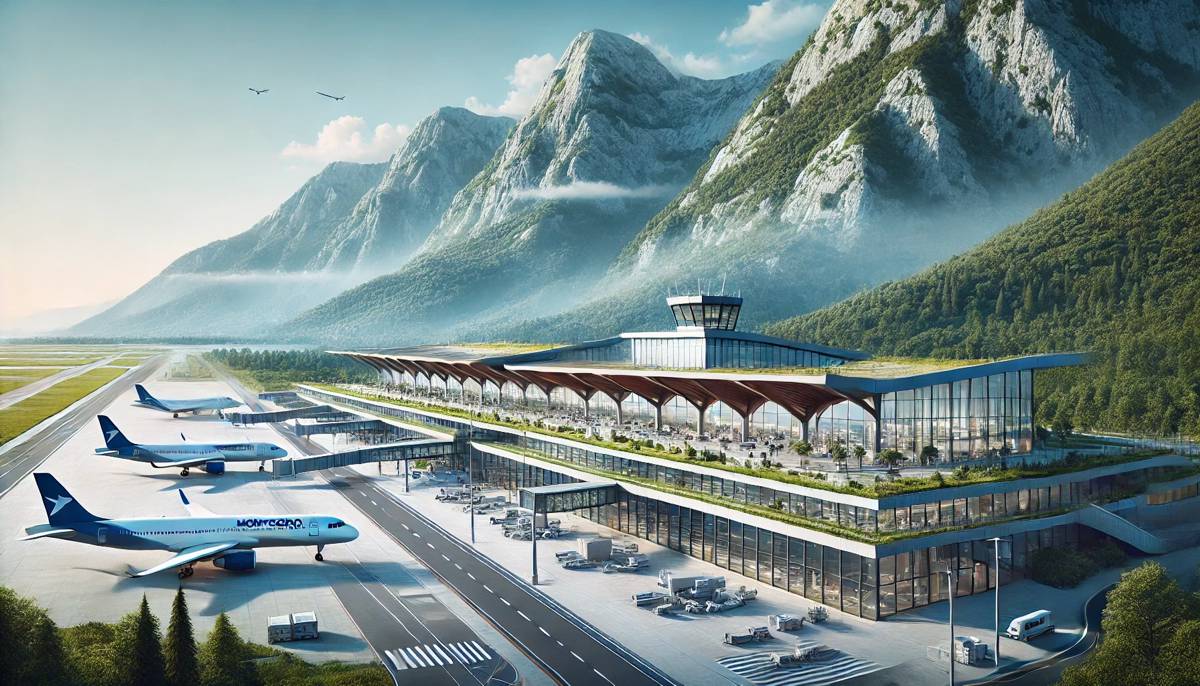Long-Term Airport Concession Tenders Announced in Montenegro
The Government of Montenegro has taken a decisive step forward in its long-term vision for the nation’s aviation sector. In an announcement made through its Tender Commission, the government issued a Request for Proposals (RFP) for the concession of Podgorica and Tivat Airports.
This development marks the second phase of an initiative aimed at revitalising Montenegro’s aviation infrastructure and boosting its economic prospects.
The RFP process, carried out with the assistance of the International Finance Corporation (IFC), underscores the government’s commitment to seeing this project through. Originally launched in 2019, the tender has faced several delays, with only the pre-qualification stage completed in the past five years. Now, three international bidders have been shortlisted to move forward, reigniting momentum for what could be a transformative development for Montenegro’s connectivity and tourism sector.
A Strategic Move for Economic Growth
The government’s focus on improving airport infrastructure aligns with its broader ambitions to foster economic development. By granting a long-term concession, Montenegro aims to modernise its two primary airports and enhance their operational efficiency. Podgorica, the nation’s capital, and Tivat, a hub for the coastal region, are both critical gateways for international visitors.
“This tender represents a crucial step in our strategy to position Montenegro as a key travel destination in the region,” said a government spokesperson. “The involvement of international operators will bring global best practices and expertise to our airports, elevating them to new heights.”
With Montenegro’s tourism industry being a cornerstone of its economy, the move to upgrade airport infrastructure couldn’t come at a better time. Improved facilities and services are expected to increase passenger traffic, boost revenues, and provide a significant uplift to the local economy.
International Expertise Driving Progress
The inclusion of the IFC in this process highlights the government’s commitment to ensuring transparency and attracting top-tier global players. As the private sector arm of the World Bank Group, the IFC is renowned for its ability to structure complex public-private partnerships (PPPs). Their involvement reassures potential investors that the project is being managed to the highest international standards.
The three shortlisted bidders—whose names remain confidential at this stage—bring a wealth of experience in airport management. This ensures that Montenegro’s airports will not only see infrastructural upgrades but also benefit from operational efficiencies and strategic planning that align with global aviation trends.
Challenges and Opportunities
While the RFP announcement is a step in the right direction, challenges remain. The concession project must navigate geopolitical tensions in the region, evolving aviation regulations, and the unpredictable nature of global travel demand.
However, these challenges are balanced by opportunities:
- Tourism Growth: Montenegro’s stunning coastline, historic towns, and natural beauty make it a magnet for international tourists. Upgraded airport facilities could enhance the visitor experience and attract more flights.
- Economic Diversification: Beyond tourism, improved airport infrastructure could bolster Montenegro’s logistics and trade sectors, positioning it as a regional hub.
- Sustainability: Modernisation efforts could include eco-friendly technologies and green initiatives, aligning with global trends in sustainable aviation.
Timeline and Expectations
The government has set an ambitious timeline for the next phase of the process. Bidders are expected to submit detailed proposals addressing technical, financial, and operational criteria. These submissions will be evaluated rigorously to ensure that the selected operator can meet Montenegro’s long-term goals.
Once awarded, the concessionaire will likely focus on expanding terminal capacities, improving passenger amenities, and enhancing connectivity with key markets. It’s anticipated that the selected operator will also prioritise workforce training and development, bringing new opportunities to local communities.
Looking Ahead
Montenegro’s decision to move forward with the RFP for Podgorica and Tivat Airports signals a bold step toward a brighter future. By involving international expertise and fostering private sector investment, the government is laying the groundwork for sustained growth in its aviation sector.
As the tender process unfolds, all eyes will be on how this ambitious project unfolds and the long-term impact it will have on Montenegro’s economy.





























